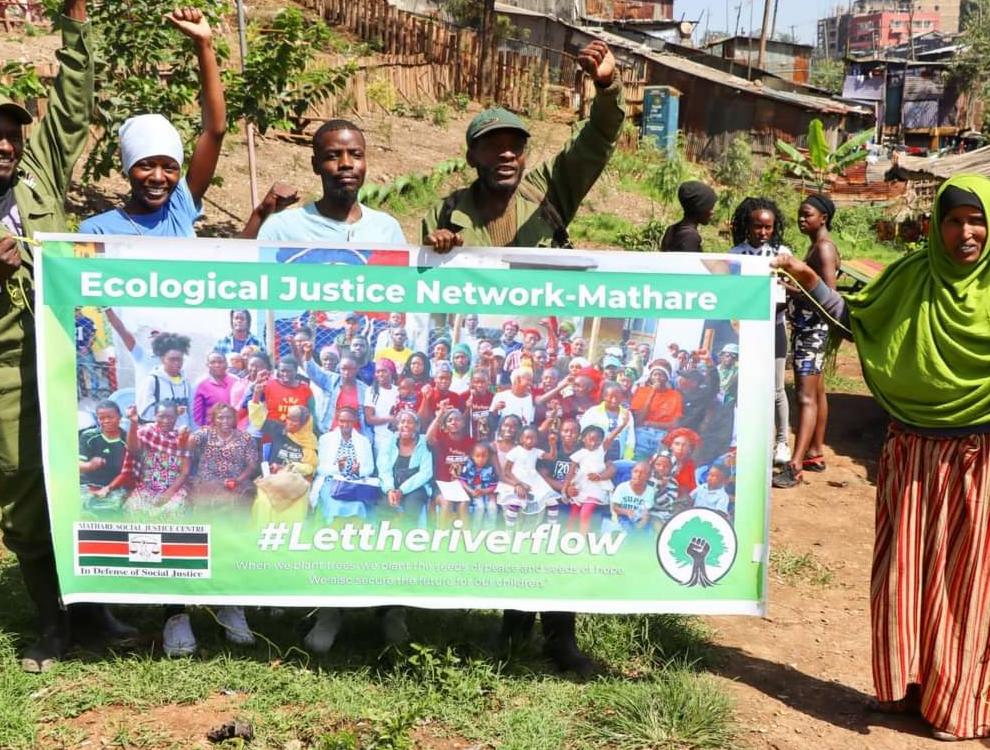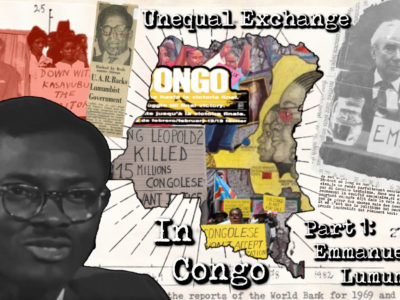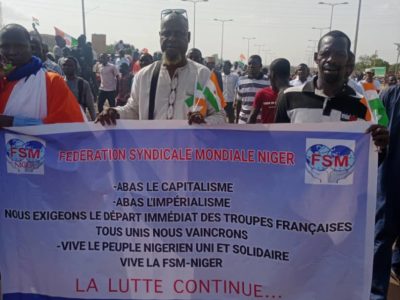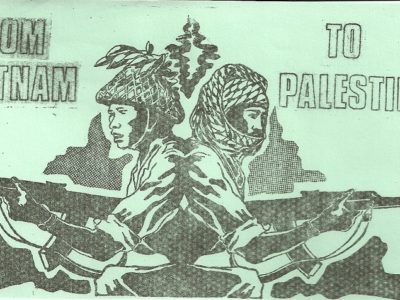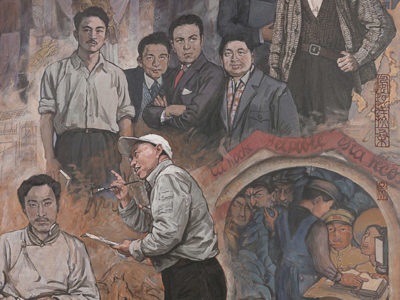Submission by Comrade Brayan of the Young Communist League of Kenya
Ecology now appears as an integral fabric of the present world and in the development of existing societal struggles. The struggles for survival have integrated with the struggles for social justice in the different set-ups and stretches of life. In Kenya, the struggles for ecological justice have been central to creating a common, soft landing for organizational growth, yet posing a rough challenge in the process of building an alternative society and confronting the glaring capitalist crisis. The country has made some progressive developments as well as confronted hurdles in the battle towards ecological sustainability. The process might be stiff, but as much as the people have the will and perseverance to organize, there seems to sprout a resounding optimism in the battles towards achieving ecological sensibility. Various communities, social movements and progressive forces have attempted to usurp the conditions, challenging to develop the thought process further, from the environmental movements of the 1950’s and 1970’s. Intergovernmental bodies and charitable organizations can be seen but are still confined under philanthropic objectives.
There have been notable steps in the various set-ups of informal settlements and attempts by social movements, like the Social Justice Movement: The Ecological Justice wing, to reverse and change the abnormality. This has been done through consistent study, analysis, and formation of cooperative organizational lines in the field of environmental conservation. There have been meetings organized to discuss and understand the interlinkages of Social Justice and ecological Justice by the movement, and the ecological justice movements, established in various informal settlements around Nairobi. This has gone a long way in the realization and action-based responses. There have been establishments of various local green spaces like community parks, environmental hubs, and social spaces around the informal settlements. The aim is mainly to generate community responses to environmental solutions, spread across the various informal settlements in Nairobi. Other objectives include building solidarity and collective approaches to environmental problems, including policy demand, advocacy, and local solutions. The process has also been a contemporary, sustainable process in generating income for young people, lowering the risks of crime, and extrajudicial executions that are rampant in the informal settlements.
Below are some of the inspiring storylines of what is ongoing:
Githurai Water Resource Users Association.
This is an association established around 2010, and that aimed to unite the various community parks, and local environmental hubs that organize along Gatharaini River which stretches 104 km from the source, down the urban informal neighborhoods.
The group consists of young people drawing around Githurai, Kasarani, Kiangiciri, to Ruai. They have consistently been engaged in River conservation, along with other practices that promote education and environmental sensibility. They have now established several tree nurseries, achieved to establish a bamboo conservation project, and established several income generating activities, as well as achieved in creating community green spaces. The association has now brought together several community parks and hubs including Small-Axe, Simplicity, The Green Jewels and The Green army, all located at different spots along the river, and with similar activities. The spots have been instrumental in eradicating the culture of environmental pollution in our hoods, and has additionally, controlled the high rates of crime. This has created a workable approach to conducting political education, and providing social spaces to organize and create sustainable channels.
Ecological and social justice struggles in Mathare.
Mathare should be a clear representation of the continuous struggle for a life with dignity. These reflections are engraved under Chico Mende’s assertions that suggested that, ‘ecological justice without the class struggle is gardening.’ Still, at the helm of this state of hopelessness, poverty and destitution witnessed in the Mathare society, arose a vibrant generation of young people from the Mathare Social Justice Centre who committedly sought to demand attainment of the ecological justice objectives. This has progressively been achieved through reclaiming and transforming public spaces and eventually utilizing them as sites of struggle. They have actively taken up the role to organize and mobilize the community to take up community responses to the ecological destruction in this densely populated neighborhood, and which, most of the population is unemployed. This group of social justice activists runs the campaign under the banner of the MSJC ecological pillar. They have consistently been active in planting trees in the slum and reclaimed public spaces by transforming dumping sites into attractive, local community parks. To understand the strides they have made and continue to make, we must create in the readers’ mind, that Mathare is one of the congested informal settlements in Nairobi, and the inhabitants have no land to work and live in. The conditions leave the people to live in a constant lack of clean and safe water for drinking: not even enough to sustain the daily domestic activities. Mathare also neighbors suburbs, and corporate ventures who carelessly drain their waste into the Mathare River, the only river that the Mathare people should depend on to quench their daily needs. To deny a people clean water is to deny them the right to life. The team of social justice activists has since reclaimed several public spaces, turning them into community hubs, and income generating activities to curb the menace of extra-judicial killings, crime and poverty that is rampant in the area. Their main activity is aimed at cleaning the Mathare River. The Mathare River flows from the Nairobi high ends as a clean river but gets to the Mathare as a polluted stream, due to the pollution and effluent discharges from industries, corporate establishments, and the affluence suburbs found upstream.
The course for ecological justice is the quest for freedom and social justice. Every person ought to understand the world, and discover their roles in changing it.
Social ecology is a concept that goes deeper beneath the abstract understanding of environmentalism: the general routine of the ‘urgency’ to increase forest cover, planting trees, and organizing local clean-ups in our hoods. It is instead, the realization that ecology is connected to every aspect of the social life of human beings. The social ecology thought has been interpreted, understood and applied differently across different ideologies, raising scientific debates and arguments across the universe about the trajectory to resolve the crisis evident in modern times. The Marxian thought has insisted on the classical analysis of the dialectics of nature while the libertarian municipalism thought holds on to its communalism approach. The modern political rivals have constantly argued about the green ideology, and the conservative approach. Social movements and political players have also participated in the development of this conversation demanding policy amendments, and various developments. If so, then this is an issue worth a debate. A carefully approached analysis, using the correct lenses.
“We all share one planet and are one humanity; there is no escaping this reality.” Wangari Maathai – The Challenge for Africa.
As it has been witnessed in recent times, the world has been hit by a myriad of glaring crises, from the continuous erosion in the social fabric, the crumbling economy, and an ever-growing political stalemate and rivalry. Various epochs of history, have experienced similar conditions, even when not as exact as the present. Various thinkers, philosophers, and scientists have, in their intellect, analyzed the conditions differently. At this point then, it becomes our maiden role, to analyze and define the present conditions carefully, and move towards changing the conditions.
The climate catastrophe has hit the world at its core. It remains a dominant conversation among the different societies, states, institutions and implementing agencies. All those who seem to have now taken up the conversation, passionately, and discussing it ferociously, have come up with no solutions but falsifications, aimed at continued plunder, to fulfill their economic interests and to appear as to be working towards some changes. Formations like the G7, the United Nations, world organizations and Non-Governmental responders like the WWF, Fridays for Future and Green Peace would be good examples portraying the laxity in interests to solve the ecological catastrophe.
The interconnected symbiosis between man and nature is intricately bound. They are woven in an inseparable knot. The mutual interdependency between both should be a point of man to note. Society in communalism existed in the principle of collective redistribution of natural resources. In the dialectical historical transcendence, domination of humanity over nature has evolved in a rapid transition. The domination of humanity over nature has been rooted in the domination of person by person. In the neo-liberal era, under capitalism, production is essentially for profit. It is opposed to the necessity of needs, but for the interests of a greedy few. The increase in population, can also not be entirely attributed as a reason for the climate crisis we are experiencing.
It has been made clear that the production of surplus is extremely wasteful and highly exploitative. The classical division of the rich and the poor remains at the core of the ecological catastrophe that we find the world in. As the society finds itself at crossroads, there emerges a series of violent, imperialist political wars, popularly referred to as wars on ‘terror’: bombing, killing societies with chemical weapons and drone strikes, in countries like Libya, Afghanistan, regions of Kurdistan and in various parts of the world. Which in turn, again exposes the poor people to the wrath of the dreaded consequences: deaths, earthquakes, destruction of food farms and water channels: drought, starvation and misery. Government States in Africa have on a similar track prioritized opulence in times of ravages, fierce, long periods of drought, rampant floods and social ills like the high levels of unemployment. Big corporations have stood at the bar of pollution, spilling their waste to the river sources, contaminating water and the air in poor neighborhoods of Mathare, Korogocho and Industrial Area in Nairobi, Kenya.
Capitalism has in essence lived beyond its usefulness. Its wasteful nature is a reason to dazzle all the conscious living beings to awaken the unconscious. All institutions established to serve humanity in education, research and innovation should work towards untangling themselves from the chains of influence and capture. The overthrow of the oppressive capitalist system can be evidently predicted on the basis of the continued deterioration of economic conditions, and the uprisings witnessed in the various parts of the world. The role of the human consciousness would be the most important aspect in the process of liberating society. The environmental catastrophe, a burden that each of the poor people has to carry on their backs is a result of the productive system in capitalism. The social transformation relies on the development of the human consciousness in which, the social order will be overturned to save mankind and restore his relationship with nature. The culture of consumerism, Individualism and domination of nature must be transformed into a triad of quality of life, human solidarity and ecological sensibility.
The classical dimension of ecological destabilization in Kenya mirrors the issues of class dominance and exploitation. Since colonialism, which interfered with the development of African culture, issues of land remain unsolved under capitalism. The intergovernmental bodies have since advised policies like the Truth, Justice and Reconciliation Commission, and notable commissions to look into the issue. A falsification! Capitalism and a people’s self-determinant society are irreconcilable. Land as one of the main factors of production remains in the hands of the filthy rich, who inherited colonial privileges, pushing the people to reserves, now regarded to as informal settlements and ghettos. The systemic violence is aimed at appropriating all sources of food and production, leaving the masses exposed to starvation, unemployment, and eventually, death. The multinational corporations in their individualistic and anti-social existence have also taken their investments into the play, kicking out the culture of self-sustenance and self-dependency, introducing an unhealthy culture of dependency. Ranging fires around the region, due to the climate crisis have done away with the neo-lithic form of traditional medicine, bringing rise to the growth of private pharmaceutical companies, who sell their drugs expensively to the dying poor people. Capitalism is just but a gang of criminals who can disagree on positions, but never compromise on principle.
The article might have not exhausted all spheres of this broad topic, but it is my belief that it sets a challenge in the battle against ecological destruction and sets pace for the continuation of debates, and the generation of solutions towards achieving sustainability, sensibility, and the path towards socialism.

